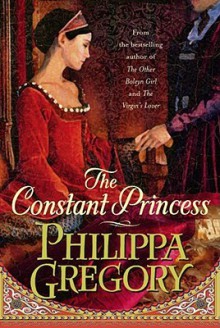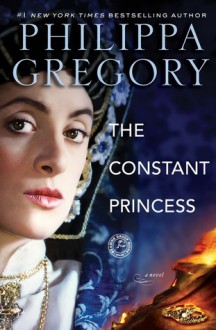
I've been on a kick with Philippa Gregory novels lately. They've taken the place in my reading schedule of the "bath book" - mass-market historical romances that I read in the bathtub in the morning. I've finished the Cousins' War cycle and traveled into the Tudors. I may read a few more before drifting away from her again, or perhaps not.
I really like a few things about Gregory's novels; equally, there are a few things that I don't like so much. She's wonderful with character - especially women. She gives a historical voice to females who often either had no public voice or whose public image was shaped by men over the centuries. She gives the plots and machinations of Renaissance politics great atmosphere.
When reading Gregory, one must remember that she's playing fast-and-loose with history, and some of her choices regarding characters who are historic figures and their motivations have absolutely no documentation. These are historical FICTION, not History with a capital H. But they're pretty fun and easy to digest.
What I don't like - often her stories feel remarkably passionless. She covers so many years - decades even - of time in a novel it feels like driving through history at 55 mph. And her writing style sometimes confounds me. That was the case in "The Constant Princess," the story of the young years of Katherine of Aragon.
Gregory's novels, for me, are most successful when they use a first-person point of view, and as a reader you spend the entire book inside the main character's head. "The Constant Princess" inexplicably shifts from third-person to first person, with only a change in typeface. The first-person sections are not diary entries. They are not testimony, nor are they letters. They are not even extended thought bubbles, as scenes happen within them. It's just the author wanting to have the best of both worlds - the ability to live in an omniscient world and to be inside her character's thoughts.
However, there were things about "The Constant Princess" that I really, really loved. First and foremost, I naively have spent my whole life believing Katherine of Aragon's testimony that she and Arthur Prince of Wales never consummated their marriage. Henry was the bad guy. Why would Katherine ever lie?
Why, indeed? Could I never see before how much was at stake for her before? This novel not only removed that blinder, but Gregory chooses to give them a passionate, tender love story, making his death even more poignant. It was by far the most compelling part of this novel, and I was moved.
I would love to read a Catalina/Arthur love story again - this time at a slightly higher level of presentation.
-cg

 Log in with Facebook
Log in with Facebook 








